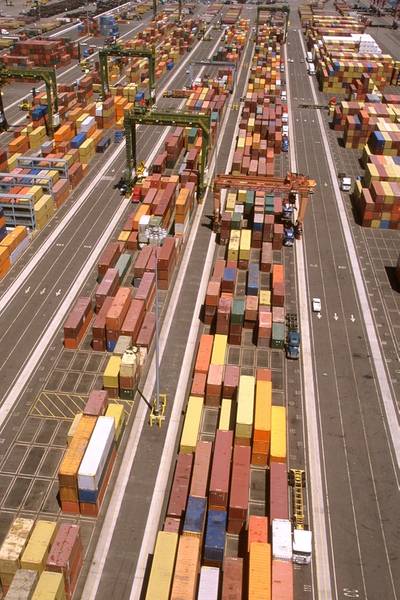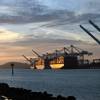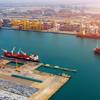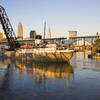Harbor Commission approves new steps to improve cargo flow
Taking aim at the bottleneck that has slowed cargo movement through the port recently, the Long Beach Board of Harbor Commissioners on Monday approved measures to relieve congestion including a petition of the Federal Maritime Commission for permission to work in concert with the neighboring Port of Los Angeles.
The Harbor Commission authorized the release of a Request for Proposals for the creation of a “peak chassis pool,” which would augment the supply of the chassis – the truck trailer frames used to haul cargo containers – when they are most needed. A shortage of chassis has been a major factor in the congestion issues at the port complex this year.
Also, the Commission gave preliminary approval to a cap of four days for parking or “dockage” fees charged by the Port to ships at berth. Due to delays in cargo movement, ships have needed to stay at berth longer and have had to pay higher fees. With the dockage relief, the Port would forgo an estimated $150,000 in fees by allowing longer stays without charge during stays in Dec. 1, 2014, through March, 31, 2015.
These measures, in combination with earlier steps taken by the Board of Harbor Commissioners and the Port of Long Beach, are aimed at alleviating and preventing congestion.
The Los Angeles Board of Harbor Commissioners earlier this month approved the action to file with the federal government for permission to work with Long Beach on congestion. The San Pedro Bay ports want to collaborate with industry partners on matters including rail operations, chassis supply and storage, vessel calls, truck turn times and marine terminal operations. The Federal Maritime Commission could grant the ports immunity from anti-trust laws that would otherwise prohibit the two ports from collaborating.
“Separately, we’re all working on solutions,” said Jon Slangerup, Port of Long Beach’s Chief Executive. “But these are systemic problems that can only be solved by bringing all the parties together, and agreeing on long-term, integrated solutions throughout the supply chain.”
Like ports around the nation, Long Beach and Los Angeles are struggling with congestion because of increasing trade, surges from a new generation of megaships and a shortage of chassis. Congestion peaked this fall, but the Port of Long Beach wants to make sure this never happens in the future.
As the result of earlier Board of Harbor Commissioners action, the Port’s Pier S Temporary Empty Container Depot is scheduled to open Dec. 29 to provide truckers with space to unload empty containers and free up their bare chassis to pick up cargo. The 30-acre storage facility will be open until the end of March 2015.













